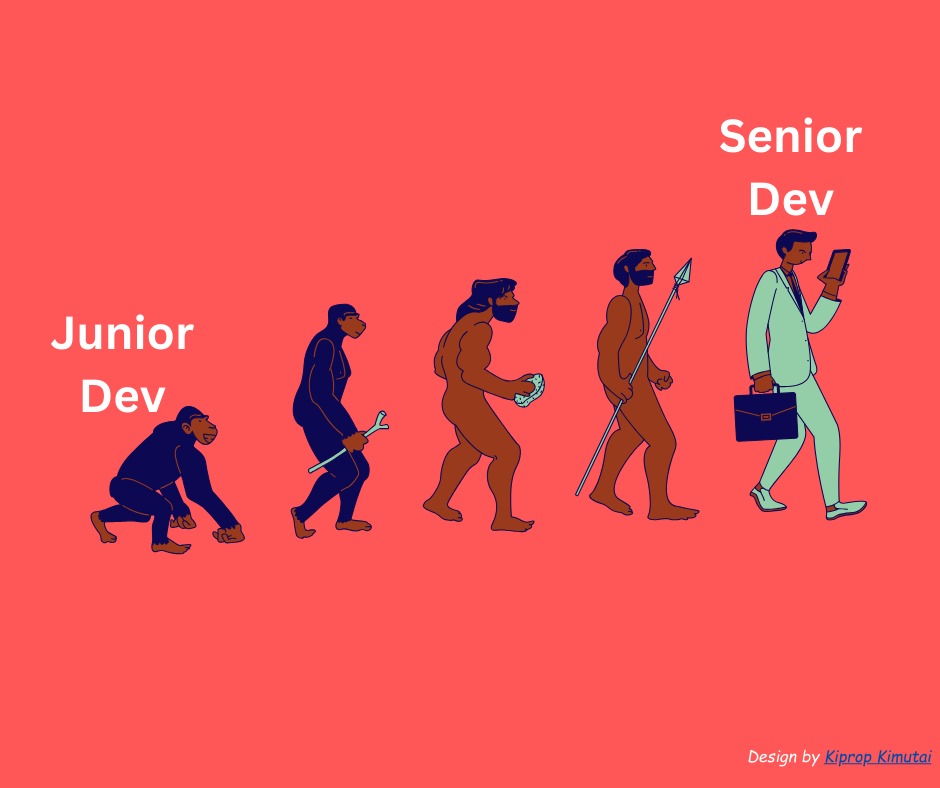The Roadmap from Junior Software Developer to Senior: A Comprehensive Guide
Transitioning from a junior software developer to a senior role is a pivotal moment in your career, a journey of personal and professional growth that demands more than just technical proficiency. This comprehensive guide is a roadmap that will help you navigate the intricate path to becoming a senior developer. We will delve into each crucial component, providing an in-depth perspective to help you succeed in your quest.
Mastery of Technical Skills
1.1 Continuous Learning and Skill Enhancement
In the ever-evolving world of technology, learning is a constant. Embrace this mindset by continually upgrading your skills. Stay abreast of the latest trends, tools, and programming languages. Engage in online courses, workshops, webinars, and attend tech conferences to expand your knowledge base. Dive deep into the technologies relevant to your field, be it front-end development, back-end, mobile, or data science. A senior developer’s journey begins with a deep and comprehensive understanding of these technologies.
1.2 Diverse Project Experience
Projects that challenge your abilities and expose you to various aspects of software development are the crucible of expertise. Seek out diversity in projects, from e-commerce solutions to healthcare applications. This diversity not only enhances your skill set but also builds a robust portfolio that showcases your adaptability and versatility. Collaborate with cross-functional teams to learn the art of effective communication with stakeholders of varying backgrounds.
1.3 Open Source Contributions
Contributing to open-source projects is a vital step towards becoming a senior developer. It’s an opportunity to not only enhance your coding skills but also demonstrate your collaboration within the broader development community. Platforms like GitHub and GitLab offer the perfect stage to showcase your contributions, engage with fellow developers, and gain experience in maintaining and improving existing codebases.
Ownership and Accountability
2.1 Project Leadership
As you transition to a senior role, you will be expected to lead projects. This means taking charge of entire projects or substantial components, making critical decisions, and guiding your team towards success. It involves managing project timelines, scope, and resources effectively, as well as developing the ability to communicate your vision and delegate tasks appropriately.
2.2 Accountability and Learning from Mistakes
Embrace failure as a valuable learning experience. Acknowledge and rectify your mistakes, and apply these lessons to future endeavors. Understand the consequences of your actions on your project and team, emphasizing personal and collective accountability. It’s through these experiences that you’ll grow as a leader and as a developer.
2.3 Mentorship
One of the hallmarks of a senior developer is the ability to mentor junior developers. Sharing your knowledge and experience not only helps others but also reinforces your own understanding and leadership skills. Effective mentorship fosters a culture of continuous learning within your team.
Development of Soft Skills
3.1 Effective Communication
Your technical proficiency needs to be complemented with exceptional communication skills. Learn to convey complex technical ideas clearly and concisely. Adapt your communication style to interact with non-technical stakeholders and team members. Cultivate the ability to create comprehensive documentation that aids in understanding and collaboration. As a senior developer, your ability to communicate effectively is paramount.
3.2 Leadership Qualities
Develop leadership qualities by making informed decisions, guiding your team, and inspiring your colleagues to excel. Understanding team dynamics, conflict resolution, and how to motivate individuals to work cohesively are crucial skills for a senior developer. Lead by example, demonstrating professionalism, ethics, and a strong work ethic.
3.3 Problem-Solving Expertise
Problem-solving skills are the bedrock of a senior developer’s abilities. Master them by solving complex issues both independently and collaboratively. Approach problems systematically, break them down, and devise efficient solutions. Utilize creativity and critical thinking to address unique challenges that arise during development.
Embracing Best Practices
4.1 Code Quality
Code quality is non-negotiable for senior developers. Prioritize writing clean, maintainable, and efficient code. Participate in and encourage regular code reviews to ensure quality and consistency. Enforce coding standards within your team, promoting a shared understanding of best practices.
4.2 Documentation
Effective documentation is the bridge between your technical work and the rest of your team. Thoroughly document your work to facilitate project maintenance and scalability. Effective documentation is a cornerstone of seamless collaboration and knowledge sharing within your team.
4.3 Testing and Quality Assurance
Deepen your understanding of testing and quality assurance practices. Advocate for and implement testing strategies, automation, and continuous integration to enhance software reliability and robustness. Ensuring your software works as expected is a core responsibility of a senior developer.
Architectural and System Thinking
5.1 Architectural Patterns
Familiarize yourself with common architectural patterns such as Model-View-Controller (MVC), microservices, and more. Understand when and how to apply these patterns to design scalable, maintainable systems. Explore different design paradigms, considering the trade-offs of each. A senior developer has a broad architectural perspective that guides their decisions.
5.2 Scalability
Learn how to design systems that can gracefully handle increased demand and scale efficiently. Grasp the intricacies of load balancing, caching, and distributed systems to optimize performance. A senior developer’s role often includes designing systems that can grow with the demands placed upon them.
5.3 Security Awareness
A deep understanding of security practices is imperative for a senior developer. Protecting applications from vulnerabilities and attacks is a primary concern. Implement security measures, such as encryption, authentication, and access control, to safeguard sensitive data. Your attention to security ensures the integrity and privacy of your applications.
Continuous Improvement
6.1 Feedback Loop
Actively seek feedback from peers, mentors, and team members. Embrace constructive criticism as a means of refining your skills and decision-making processes. Create an environment where feedback is encouraged and mutual growth is a shared goal.
6.2 Goal Setting and Tracking
Set clear, actionable career and skill development goals. Continuously monitor your progress and adapt your strategies as needed to achieve these objectives. Utilize key performance indicators (KPIs) to gauge your progress and determine areas for improvement. As a senior developer, your commitment to personal and professional growth is unwavering.
6.3 Networking and Community Building
Building a strong professional network within the tech industry is essential. Connect with like-minded individuals by attending meetups, conferences, and engaging in online communities. This network not only keeps you informed about industry trends but also opens doors to new opportunities.
Conclusion
The journey from a junior software developer to a senior is a challenging and rewarding one. It’s a path of continuous learning, leadership, accountability, and honing both technical and soft skills. While reaching senior developer status is a significant achievement, remember that it’s not the end of your journey but the beginning of new and exciting opportunities and challenges in your evolving software development career.







